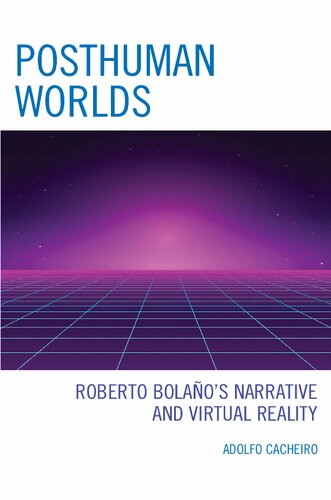

Most ebook files are in PDF format, so you can easily read them using various software such as Foxit Reader or directly on the Google Chrome browser.
Some ebook files are released by publishers in other formats such as .awz, .mobi, .epub, .fb2, etc. You may need to install specific software to read these formats on mobile/PC, such as Calibre.
Please read the tutorial at this link: https://ebookbell.com/faq
We offer FREE conversion to the popular formats you request; however, this may take some time. Therefore, right after payment, please email us, and we will try to provide the service as quickly as possible.
For some exceptional file formats or broken links (if any), please refrain from opening any disputes. Instead, email us first, and we will try to assist within a maximum of 6 hours.
EbookBell Team

5.0
40 reviewsPosthuman Worlds: Roberto Bolaño's Narrative and Virtual Reality presents interpretations of several novels and one short story by Roberto Bolaño. As befits the global setting of most of these narratives, they are analyzed from the perspective of global culture and politics. Particular attention is paid to transnational European politics, as this topic is central to an understanding of the intertwined themes of politics and the law in Bolaño’s work. In Distant Star and “Labyrinth,” these themes exist within the context of a preoccupation with personal identity and ideology. Adolfo Cacheiro utilizes psychoanalytic interpretation and philosophical exegesis to clarify the subjective component of this preoccupation in the aforementioned texts. The law is also a prominent theme of The Savage Detectives, which Cacheiro interprets in relation to mythology. One of the most innovative aspects of this book is the discussion of the role of virtual reality in Amulet and 2666. These novels are read as representations of a posthuman world that manifest an intertextual relationship with science fiction. In 2666 virtual reality unifies the diverse components of a world system in time and space. A phenomenological investigation of this reality supports the conclusion that the principle subject matter of 2666 is a naturalistic theology based on technology.